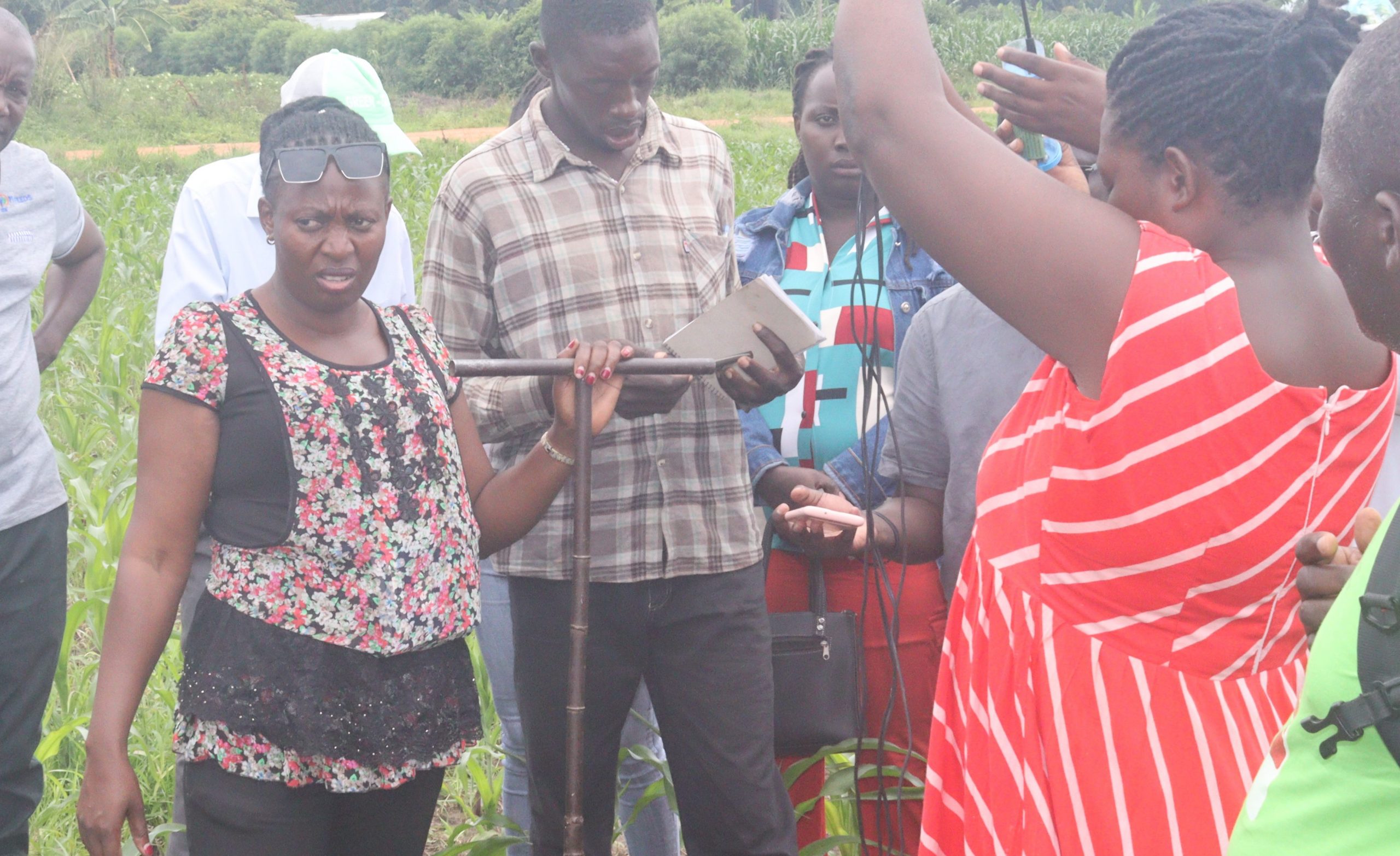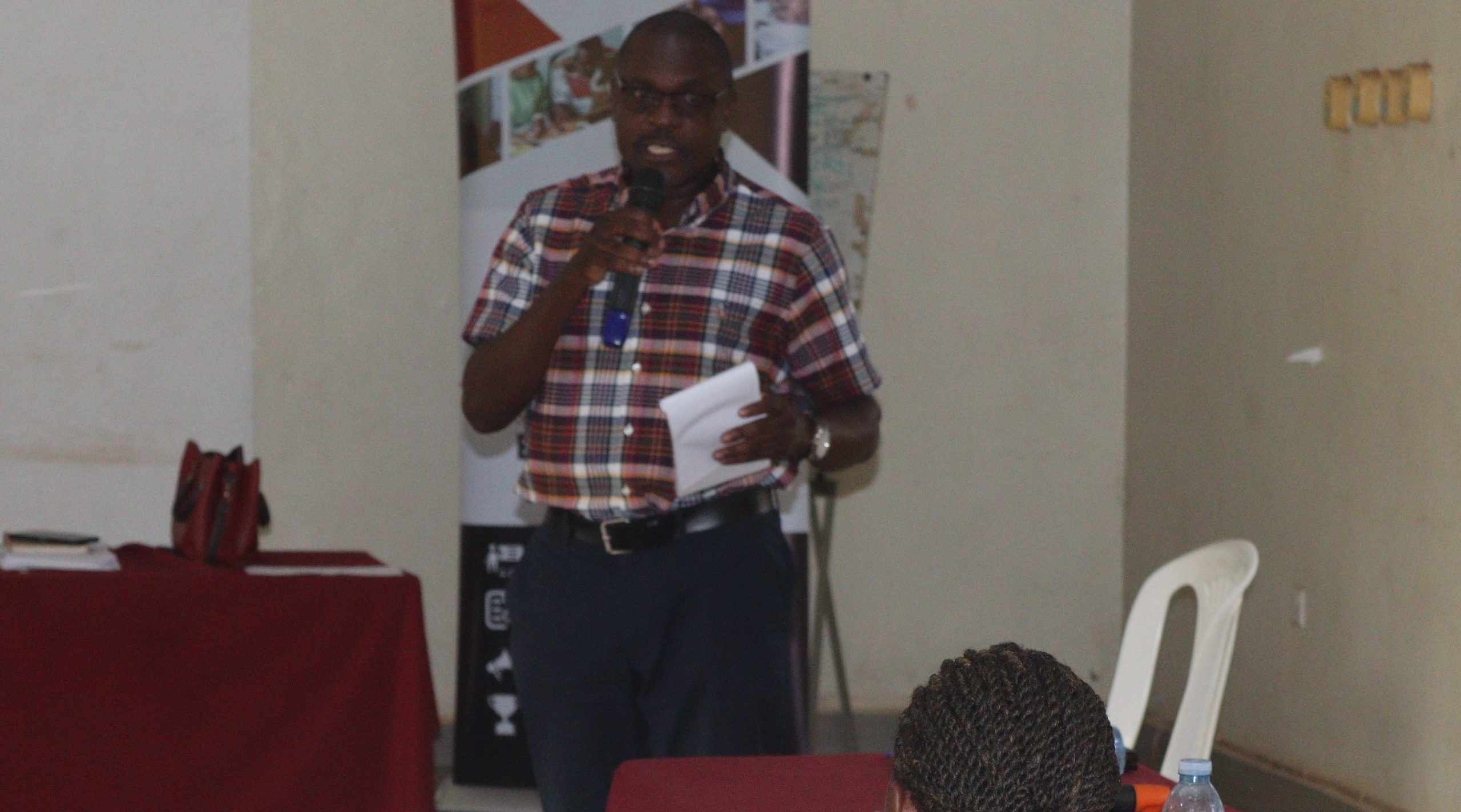
ASARECA Training; Kasese Farmers Welcome Smart Technological Tools
Farmers in Kasese are optimistic about emerging technologies designed to enhance farm productivity and reduce production costs. They believe that these affordable innovations provide a lifeline to the agriculture sector amid the challenges posed by climate change.
More than 30 farmers in Kasese have received training on how to access and utilize climate-smart moisture and nutrient monitoring tools. These tools include the Chameleon Sense Array, which measures soil moisture at different depths, Nitrate strips for assessing fertilizer runoff, the Wetting Front Detector to record the depth of irrigation water infiltration, and the Chameleon EC Meter that gauges the electrical conductivity of water samples captured by the Wetting Front Detector.
The training is supported by the Association for Strengthening Agricultural Research in Eastern and Central Africa (ASARECA) in partnership with the Ministry of Agriculture and scientists from Malawi. The farmers have expressed that these innovations come at a crucial time when climate change presents significant challenges to agriculture in the district and Uganda at large.
Yustar Kamwaka, a farmer in the Mubuku irrigation scheme, noted that local farmers initially struggled to determine when to irrigate and the amount of water needed for their crops, often leading to nutrient loss and excessive water use. She believes that the technologies showcased will enable farmers to adapt to changing conditions and improve their agricultural practices.
Kamwaka also emphasized that these emerging technologies are relatively affordable and easy for local farmers to use.
Tom Thembo, a farmer in Saluti A, expressed that his agricultural practices had seen limited success, often hindered by climate change, particularly prolonged dry spells.
He stated that with moisture-monitoring technology, he can now make informed decisions about which crops to plant and when.
Jennifer Mihhoza, a maize grower in the Mubuku irrigation scheme, highlighted that smallholder farmers face significant challenges in accessing modern equipment and resources to enhance productivity.
With technology becoming more accessible, she feels better equipped to understand her gardens and improve her farming outcomes.
In Uganda, it is estimated that smallholder farmers constitute about 89% of the farming population.
Dr. Isaac R. Fandik, Chief Agricultural Research Scientist with the Department of Agricultural Research in Malawi and a key figure behind these innovations, noted that for economies like Uganda’s, which heavily rely on agriculture, technological advancements can lead to higher productivity, improved market access, and sustainable farming practices.
He stressed the need for sustainable irrigation systems, especially as climate change renders resources like water increasingly scarce.
Fandik added that data collected by farmers from the field could be utilized through online systems to enhance agricultural practices. In Kasese, ASARECA will support farmers in irrigation schemes to access some of these monitoring tools.
Agriculture is a cornerstone of Uganda’s economy, providing livelihoods for millions and contributing significantly to the country’s GDP.
However, the sector faces numerous challenges, including low productivity, climate change, and limited market access. Experts suggest that technology can play a vital role in addressing these challenges and transforming the agriculture sector into a more efficient, productive, and sustainable industry.
#BasaijaIddi#URN#UJK#KDLG

